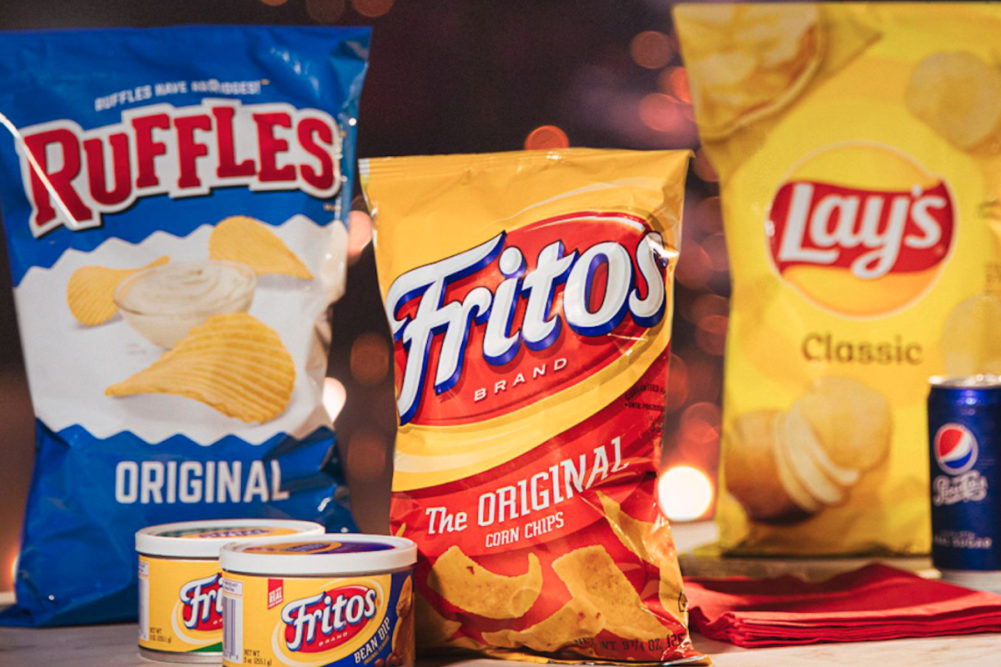PURCHASE, NY. — Acceleration in its global beverage business coupled with resilience in its global snacks and food business propelled PepsiCo, Inc. to a strong finish in fiscal 2020, said Ramon L. Laguarta, chairman and chief executive officer.
“Our results were indicative of the strength and resilience of our highly dedicated employees, diversified portfolio, agile supply chain and go-to-market systems and strong marketplace execution even in the face of difficult COVID-19 challenges,” Mr. Laguarta said. “Moving forward, we remain committed to supporting our employees, customers and communities. In addition, we will continue to focus on winning in the marketplace and investing to build competitive advantages that will enable us to become an even faster, stronger and better organization.”
Net income attributable to PepsiCo for the year ended Dec. 26, 2020, was $7.12 billion, equal to $5.12 per share on the common stock, down 2.7% from $7.31 billion, or $5.20 per share, in fiscal 2019. Excluding restructuring and impairment charges, pension-related settlement charges, net tax benefits and other items affecting comparability, adjusted net income was $7.69 billion, which compared with $7.78 billion the year before.
Net revenue totaled $70.37 billion, up 4.8% from $67.16 billion.
For the fourth quarter, net income increased 4.5% to $1.85 billion, or $1.33 per share, from $1.77 billion, or $1.26 per share, in the comparable period. On an adjusted basis, net income of $2.04 billion in the recent quarter compared with $2.035 billion the year before.
Net revenue advanced 8.8% to $22.46 billion from $20.64 billion.
Operating profit in the Frito-Lay North America business unit totaled $5.34 billion in fiscal 2020, up 1.6% from $5.26 billion in fiscal 2019. Segment revenue increased 6.5% to $18.19 billion from $17.08 billion.
“Frito-Lay’s full-year 2020 results were enabled by strong innovation, increased go-to-market investments, additional manufacturing capacity, investments in e-commerce and an increase in advertising and marketing spend across the brand portfolio,” Mr. Laguarta said. “As a result, many of Frito’s big brands delivered strong net revenue growth for the full year with Tostitos and Cheetos delivering double-digit growth, Ruffles delivering high-single digit growth, while Lays and Doritos delivered mid-single digit growth.
“Smaller, emerging brands such as Off The Eaten Path and Bare delivered strong double-digit growth. Furthermore, we successfully completed the acquisition and integration of BFY Brands in 2020, which has expanded Frito-Lay's production capabilities to offer more nutritious snacking choices for consumers.
“The breadth of Frito’s growth spanned across the large format and e-commerce channels, while sequential trends improved in the convenience and gas channel as consumer mobility began to recover.”
Quaker Foods North America operating profit surged 23% for the year, climbing to $669 million from $544 million, while sales increased 10% to $2.74 billion from $2.48 billion.
“Quaker’s growth has been driven by strong execution against the elevated demand needs for at-home breakfast and dinner occasions during 2020 and our business gained market share for the full year,” Mr. Laguarta said. “Quaker’s fourth-quarter and full-year performance included strong double-digit net revenue growth in pancake mixes and syrup, light snacks, and side dishes. Quaker’s hot and ready-to-eat cereal business also delivered double-digit net revenue growth for the full year.”
PepsiCo Beverages North America operating profit totaled $1.94 billion in fiscal 2020, down 11% from $2.18 billion a year ago. Segment revenue, meanwhile, grew 3.8% to $22.56 billion.
“PBNA’s net revenue growth was primarily driven by many of its larger brands, despite notable impacts from channel mix shifts that have significantly impacted the foodservice channel,” Mr. Laguarta said. “Most notably, net revenue for brands such as bubly and Starbucks grew double-digits, Gatorade grew high-single digits, while Lipton, Mountain Dew and Tropicana also delivered growth for the full year.
“Simultaneously, we were able to sustain good momentum on recent innovation platforms with Gatorade Zero exceeding $1 billion in estimated retail sales in 2020, while bubly, Pepsi Zero Sugar and Mountain Dew Zero Sugar cumulatively delivered more than $750 million in estimated retail sales during 2020.
“From a channel mix perspective, performance within the large format and e-commerce channels remained robust throughout the year while the convenience and gas channel also posted good growth for the full year. However, given ongoing pandemic-related restrictions and complexities, the foodservice channel has continued to decline at a double-digit rate.”
In a Feb. 11 conference call with analysts, Mr. Laguarta discussed PepsiCo’s journey to become a leading player in the energy drink market. The first pillar of energy for PepsiCo is Rockstar, which Mr. Laguarta said has been relaunched with refreshed packaging, graphics and formulations to improve its presence in the energy category.
A second pillar will be Mountain Dew, which later this spring will make its first big move into the energy space, he said.
“We're very happy with the way the product concept, the support package and the support we're getting from our customers in terms of the launch,” he said. “So that would be a good event. It will be the first move of Mountain Dew and there will be future moves as well from Mountain Dew into the energy space.”
Another key pillar is PepsiCo’s partnership with Starbucks, which Mr. Laguarta said is at an all-time high in terms of the relationship and the market performance.
“We continue to innovate on the kind of coffee energy, triple shots, double shots,” he said of the Starbucks partnership. “And we have some, I think, good ideas that I'm sure will make into the market shortly.”





